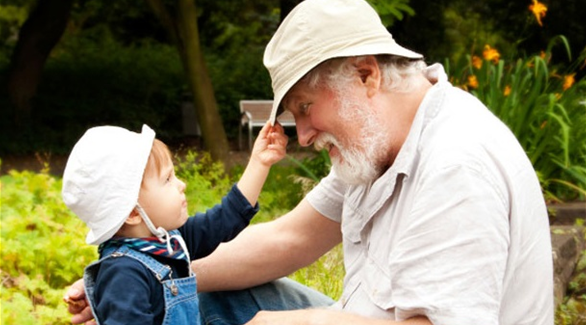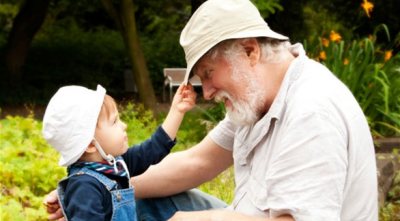Nothing is dearer than a child except for a grandchild. Many grandparents contribute to the upbringing of their grandchildren, and various studies indicate the positive role that grandparents play in their grandchildren's lives. A study by the University of Washington suggests that strong bonds between grandparents and grandchildren make both parties happier. However, this rosy picture is marred by some complications. Often, grandparents disagree with their children regarding the upbringing of the grandchildren, especially since parenting standards have changed from the past. This possibly led Sweden to adopt a new law allowing grandparents to request paid parental leave to care for their grandchildren for up to three months. Questions arise regarding the suitability of grandparents to care for children at a time when parents rely on technology and experts' advice from social media platforms.
Grandmother Najia Kamel Mansour mentioned during her appearance on the "Morning" program on "Sky News Arabia" that she fully raised her grandchildren. She stated, "I took care of my first two granddaughters entirely due to my daughter's work commitments, and I raised and cared for them as if they were my own daughters."
The relationship between grandparents and grandchildren is distinct and unique, differing in nature from that between parents and their children. Psychological and education expert Karen Elia notes that the concept of parenting and family relationships has noticeably changed, affecting the roles of grandparents in caring for their children and grandchildren. The new generation of grandparents often consists of working individuals, which reduces their chances of being fully available to care for their grandchildren while parents are busy with their jobs.
In the past, there was absolute trust between parents and grandparents, allowing parents to leave their children with their grandparents comfortably and confidently. Today, however, parents provide a list of recommendations, instructions, and rules that must be followed while caring for the child. This has led grandparents to lose some of the spontaneity with which they once approached their parenting roles due to their fear of making mistakes or violating instructions. This shift has created some emotional distance between grandchildren and their grandparents, making their relationships less harmonious than before.
The relationship between grandparents and grandchildren varies significantly from one country or society to another. In our Eastern societies, the kind of leave and privileges granted to grandparents in Sweden may seem strange, as emotional relationships are the primary driving force for grandparents. Grandparents feel a need to sacrifice for their children and grandchildren, so when they are about to take this leave, they sometimes experience guilt.
Conversely, family dynamics and relationships in Western societies differ entirely based on the nature of the multiple connections among family members. Today’s grandchildren differ from those in the past in that they are often addicted to technology, which greatly impacts the personal dynamics between grandparents and grandchildren. Many grandparents find it difficult to influence their grandchildren due to the absolute trust parents place in their children or because of the grandchildren's addiction to technology and mobile phones.
Despite the emotional bond between generations, this technological challenge remains a barrier. It is considered that grandparents' role in raising grandchildren creates a unique and strong relationship that even surpasses that between parents and their children. This relationship contributes significantly to enhancing the psychological resilience of both grandparents and grandchildren, potentially preventing the development of mental disorders that may arise from family issues at home.
The maturity of grandparents is evident in their care for their grandchildren after acquiring the necessary wisdom and experience from raising their own children. They have become more tolerant and flexible compared to how they were during their stricter parenting phase.




